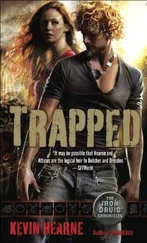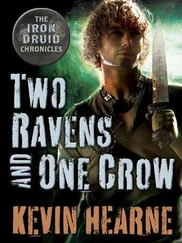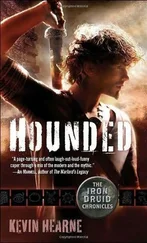She and I turned out to be very different wolves, you see. I was very dominant and she was quite submissive, despite her occasional flirtations with adventure. I could not take her for a mate, because she was incapable of behaving as an alpha, and the Pack would never accept such a submissive wolf in a leadership position. In fact, while everyone liked her, no one in the Pack wished to be her mate. So I was very glad for her sake when she fell in love with the man from the Philippines.
His name was Honorato, and he was finally able to relieve her of two centuries of misery. I am telling you, she was a new person once they paired off. Her earlier ideas about being damned faded, for how could such love be permitted to those who were damned? For the first time, she began to view her wolf as a blessing rather than a curse. If Úlfur had not chosen us centuries ago, she never would have met Honorato.
But Úlfur, though dead for hundreds of years, found a way to reach out and ruin her happiness from beyond the grave. That cold air I’d felt when he died—that was the Valkyries choosing him to join the Einherjar in Valhalla. I am sure of it. And there, while preparing for Ragnarok day after day, he must have distinguished himself enough to draw the attention of Thor. And once he gained that attention, he used it to turn a god into an assassin.
Ten years ago I took the entire pack on holiday in Norway. We visit someplace special every year, and since most of the Pack was of Norwegian or Icelandic background, they wanted to visit the homeland. We were to be there for a week, hunting and playing and indulging our wolves. On our third night there, the night of the full moon, the eight dear friends I’d saved in 1918—including Rannveig’s husband—were struck down by lightning bolts. All the Scandinavian members of the Pack were left untouched. And I stress to you that we were not out in a storm. The sky was only partially cloudy, and I knew immediately that this could not possibly have been some accident of nature. My proof came when Thor descended in his chariot and spoke to me briefly. He took care to hover out of the Pack’s reach.
He said, “Regards from Úlfur Dalsgaard, one of the finest Einherjar in Valhalla. He urges you to rethink your pack law regarding the recruitment of mixed races.” And then he laughed at us as we snarled and barked at him, enjoying how powerless we were to confront him. He flew away without saying another word, leaving us to howl and mourn.
Rannveig, as you might imagine, was devastated. The howling she did that night for Honorato, her murdered husband, still haunts me to this day.
Thor is not part of my pack. He will never be part of my pack, nor can he have any voice in what pack law says or doesn’t say. He had no business renewing a feud that I had justly settled long ago by sending Úlfur to Valhalla. And, from a human perspective, he had no business murdering people for any reason, much less for the color of their skin. There is nothing Úlfur could have offered him to make it worth his while, you see? He did it solely for his own entertainment. Can he therefore be called anything but evil?
Rannveig … well. She fell in battle two months ago against witches armed with silver knives. Though I miss her, I wonder sometimes if it wasn’t a mercy. She was suicidal after her husband’s death. I think she would have done it were it not for her wolf and her Lutheran faith.
And now you see why I must go to Asgard. I cannot kill Úlfur again—and even if I could, it wouldn’t help, since he learned nothing from the first time I killed him. But I can kill Thor to avenge eight lives and one woman’s heart, and I will. Then, perhaps, I will not hear the howling at night.
* * *
Except for the crackling of logs in the fire, there was no sound when Gunnar sat back down on his boulder. I was thinking about the two werewolves that had fallen in the battle against Aenghus Óg at Tony Cabin. Their deaths had always been a touchy subject with the entire pack, and now I understood a bit better why that was so.
“I’m sorry about Rannveig,” I said to Gunnar, breaking the silence, and he nodded sadly, though I wasn’t sure if he thought he was accepting an apology or sympathy.
Zhang Guo Lao spoke up. “It pains me to hear that Thor has treated you and your pack so abominably. I am sorry to say it seems consistent with what I know of his character.”
“Is monstrous fuckpuddle,” Perun asserted, and everyone turned to stare at him with equal parts amusement and bemusement. “What? Is this not English word?”
I suggested that if it wasn’t a word, it should be, and the others agreed.
“I, too, have a crime to lay at Thor’s door,” Väinämöinen said after the levity of Perun’s neologism faded. “His feeble mind insists that his arrogant trespasses are somehow justifiable since he is a member of the Æsir. Any criticism levied against him is met with a thunderbolt. Listen, and I will tell you how he violated a wonder of the world.”
The Wizard’s Tale
Outside of Finland I am not widely known, and even there I am largely forgotten. Like so many other gods and folk heroes, I was shoved aside to make room for a new savior, who turned out to be a man with neither music, nor sex, nor any laughter, just a promise of paradise later in exchange for meek obedience now. I am not the son of yesterday’s grouse: I could see that my people wished to swap me for something softer, and no matter how much I railed against it, no matter how much I struggled and strained, it wouldn’t produce either a baby or shit.
The best thing for me to do would be to exit gracefully. So that is what I did: I sang myself a copper boat, packed my belongings, brushed out my beard, and my purpose held—like the Ulysses of Tennyson—to sail beyond the sunset, vowing to return one day when my people needed me. Someday, I thought, someday soon, they will tire of this pale, weak god, and then they will clamor for my homecoming. That was in the year of cone and helmet.
Now we are come many years forward, and still no one calls my name. I am tired of waiting. They will never shift back to my paradigm; my glory is centuries gone.
But in Asgard there is plenty of work for an axe.
I was bitter for a time, thinking myself cast away like the stale biscuits of a fortnight ago. But slowly, rising and falling with the swell of the ocean, a new rhythm emerged within me, a sense of the tide and what it washes away, and likewise what it brings to new shores. Music swirled from my kantele as the ocean waters swirled about my keel, and thus I sang myself into a finer state of mind.
I did not lack for food on my journey: I sang to the fish whenever I had stomach, and they leapt into my boat. Nor did I lack for company. I sang to the whales of sun and wheat and the animals of the earth, and they sang to me songs of currents and krill and ceaseless peregrination. More than this, they sang of old creatures still lurking in the depths, giant serpents that men sketch fearfully in the corners of maps.
Eventually I longed for land again and made fall on a green isle with clouds of steam rising from lakes of white water, spumes of spray erupting from the earth, each hotter than the anger of a wounded bear. Today this isle is called Iceland. There were Norsemen living on the western side, in modern-day Reykjavík, but I kept to myself on the opposite side, settling on the northern shore of a fjörd that later became the site of a town called Eskifjördur. A small shelter I built there, partly with my hands and partly with my voice, to break the wind’s chill and keep my few treasures safe from the elements. This I did for solitude’s sake, but not for misanthropic reasons. No, I so loved men that I shunned them to save them.
Читать дальше











